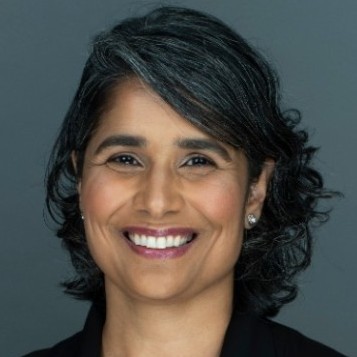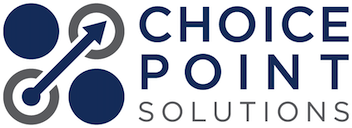A Choice Point Interview About Values, Decision-Making, and Leadership.

Choice Point: Tell our readers what you do. What’s the ‘networking-event’ explanation of your role and your practice?
Amee Sandhu: I am a business lawyer who has significant practical experience in building ethics and compliance programs. I was primarily an in-house lawyer, as well as a commercial leader and ethics and compliance officer prior to starting my own boutique law firm. I help organizations with legal and ethical questions.
CP: Tell us about the values that got you where you are today. What are they, and why have they been crucial for you?
AS: It’s as simple as try to do the right thing and be honest with yourself and with others. Being able to sleep at night is more important than accolades or material things.
CP: What’s your proudest professional achievement?
AS: There are a few! Completing my master’s degree. Being asked to take a stretch assignments by leaders in two different organizations, which in both cases led to new personal and professional growth.
Also, being the lead lawyer on Darlington Nuclear Power Plant Refurbishment, one of the largest deals in Ontario by any standard. Helping a world-class company turn around its global ethics reputation. Betting on myself and starting my own law firm and being a successful entrepreneur. Overall – being a lawyer has brought and continues to bring me great professional pride and constant stimulation and learning.
CP: What’s your favourite example of someone learning through adversity?
AS: I have so much admiration for immigrants and refugees who make new lives for themselves and have to deal with more adversity than I ever have. I am the child of immigrants. While I have faced challenges, mine are not like those faced by my parents or others like them.
In particular, I have always admired people who have overcome adversity and gotten an education. As my father always told us, everything can be taken away from you except for your education.
As a child, my mother often told me about “a boy who studied in the street under the street-lights because he had no lights at his home.” This was usually followed by “what is your excuse for not studying?” I am not sure if the boy in my mother’s story was someone she knew or saw, but it had the same impact on me.
CP: Choice Point Solutions is all about training for decision-making. Tell us briefly about a key juncture in your own career, or a dilemma you faced – a “go left or go right” moment – and tell us how you resolved it.
AS: There were actually five times that come to mind. In each case, I knew that the right thing was to say something, but it was scary to do so. In two of the cases, they were very senior men in the workplace who made inappropriate comments to me.
Two others involved very senior men, again, but the topics were different. It had to do with how a particular work issue was being handled and whether they were demonstrating strong ethical tone from the top. Finally, one was with a colleague – where I brought to her attention that people in a separate meeting thought she had made racist comments.
In each case, it was easy to know what I needed to do: speak up. Also, in each case, it was excruciating to decide how to do it. In the end, I thought carefully about how to raise my concerns in a constructive and safe manner. That was the hardest part – because when it’s with a team member, you still have to work together. Sometimes your relationships don’t survive these difficult conversations.
Regarding the two examples where inappropriate comments were made to me: when I was younger, I thought I had to handle it myself and I spoke to the individual in a “non-threatening way.” (Imagine! I was trying to be non-threatening to him, but he had frightened me!) Eventually I went to leaders in the organization for moral support. In the second situation, I was more senior and experienced, so I just reported the issue via the organization’s channels immediately.
In summary, I believe we all know what the right thing to do is, but it gets intertwined with worry about the consequences. I find it’s useful for me to separate out what is the right thing to do, what is the outcome that I want, from the impact or cost of doing it. This helps me come up with an action plan and helps to calm my nerves and make a decision that I can be proud of, instead of being paralyzed by fear of the immediate consequences.
CP: Thinking about the situations you just described, what was it about you that let you get through them?
AS: The easy way is not always the best way. To get through tough situations, I imagine myself in the future (i.e., retired) looking back on this moment. This helps me to home in on what is right, as opposed to what is easy or convenient.
CP: Without necessarily telling us who it is or was, tell us about the characteristics of one of your mentors. What was or is she or he like?
AS: Unwavering in his belief of what was right, and making his views heard even when he knew his “betters” in the workforce did not want to hear it. It probably cost him more senior positions, but that mattered less to him than being truthful and doing the right thing for the company.
CP: What’s the #1 thing for a company to keep in mind in supporting people to make ethical decisions in the workplace?
AS: Treat your employees with respect. Show ethical leadership from the top and throughout all layers of management. Always.
CP: What’s the worst or most common mistake for a company to make in how it supports (or fails to support) people to make ethical decisions in the workplace?
AS: Not treating its employee well or respectfully. I am not sure how companies can expect to treat their employees with a lack of respect, and then ask those people to come forward and challenge decisions in the workplace. Many people fear reprisals if they speak up. Or, they feel cynicism (e.g., “What’s the point?”).
CP: Here’s something for the students out there, the future leaders reading this: beyond the right education, what do young people need to do, in order to get to do the kind of work you do?
AS: Read everything you can and look to see how it connects to the life around you. Ask yourself: do I agree with what the author said and how she got there, or not? What would I have added or changed if I wrote this?
CP: Tell us a favourite book that you want to recommend, and explain why.
AS: My favourite is How To Pay A Bribe: Thinking Like a Criminal to Thwart Bribery Schemes, edited by Alexandra Wrage and Severin Wirz. While I appreciate theory, I love real life examples of the theory. In the world of ethics, I think many people have the view of “I would be able to spot an ethics issue” or “no one could fool me”, or even, “just speak up, its easy!” The stories collected in this book show how easily corruption can be disguised as a regular business practice. It’s very relevant for Canadian readers, because Canadians often seem to think these things happen elsewhere. While the book is not Canadian focused, it does show how every organization needs to be careful.
CP: Tell us a blog or podcast or website that you’d like to recommend, and explain why.
AS: My favourite podcast is also by Alexandra Wrage. Its call Bribe, Swindle and Steal. Her style puts the story front and centre. She does 1-1 interviews with experts from around the world to chat about interesting news stories about ethics, corruption, bribery, modern slavery, you name it. Sometimes the stories sound like movie-scripts. For transparency – I was interviewed for this podcast once. But I was a fan years before that!
Amee Sandhu was, at time of writing, Principal Lawyer & Founder of Lex Integra. She is more recently Senior Legal Counsel at Alstrom. You can find Amee on LinkedIn and on Twitter.
While you’re here, check out our Choice Point Interviews with other thought leaders.
